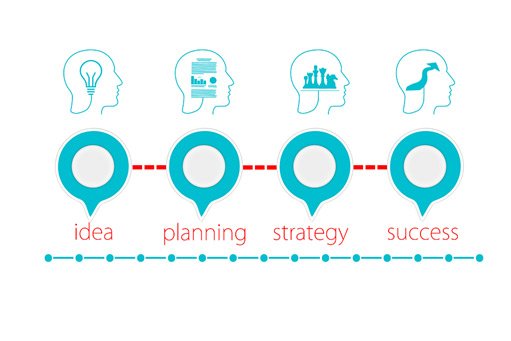Your core business model and planning efforts play a vital role in determining the future of your startup. The main distinguishing feature between thriving and failing small businesses is the strength of their foundation.
There’s a reason more than 50% of SMEs fail in the first year after. Rushed planning, preliminary research, and unrealistic goals often lead startups into a dark abyss. Thorough preparation is required to put your strongest foot forward in the market. The modern-day business conditions are easy to navigate but highly challenging. Dramatically changing customer demands, evolving market conditions, and tough marketing practices require aspiring business owners to invest extra time into the planning phase.
If you want your small business to succeed in the competitive American or Canadian economies, you’re going to need more than just financial capital. From critical business finance decisions to developing an attractive brand identity, several tasks require your attention.
This comprehensive guide will help you build a sustainable competitive position in the market. So let’s get started without further ado.
Step 1: Develop an Idea
You must’ve heard about SWOT analysis. While many businesses conduct it after launching their companies, we suggest you do it before. By analyzing your core strengths, weaknesses, opportunities, and threats, you can better gauge how to start a company. This question is key to targeting a market gap with a robust idea that’s practical and implementable.
However, you also need to follow the traditional idea generation, brainstorming, analysis, and value creation. An idea is the first part of any business plan. If you want to enter an existing, competitive market, start by looking at the direct competitors. If you’re trying to bring something new to the table, try identifying problems that need to be solved.
Ideation requires time, and aspiring entrepreneurs shouldn’t hasten in this step. Take your time to evaluate different ideas. Before choosing one, test its feasibility by analyzing market and customer trends. Moreover, don’t forget to narrow down your niche market. This will help you stick to a particular segment without disorganizing your research.
Step 2: Conduct Research and Make a Business Plan
After you’ve chosen an idea, start researching the market. Learn the highs and lows of the industry you want to enter. Choose digital as well as physical research techniques to gauge the inner working of existing companies.
Don’t rely on secondary data only; gather on-hand research data to learn the current demands of your target customer. Learn how they think, behave, react, and analyze new products and services. Observe buying patterns according to demographics. This will help you create a sustainable business model that can keep your customers satisfied for a long time.
Step 3: Navigate the Legalities
After you’re done with idea creation, analysis, and business modeling steps, move on to getting your small business licensed and registered. This is when you must dig into local and federal laws that require business owners to get their companies registered for operations.
Small businesses are exempted from any license or permit. These laws are designed to protect the public from illegal businesses, false advertising practices, and substandard products.
Step 4: Adopt Automation before Going Live
Automation is the future. From small to large-scale businesses, every player in the industry needs to adopt digitalized practices to keep up with the changing market situation. Modern-day customers are tech-savvy. They have full access to company information, product reviews, and practices.
Small businesses should allocate a budget for automating their functions. Start small by choosing an affordable yet efficient tool like cloud-hosted QuickBooks. This leading accounting software has helped millions of small businesses gain a competitive advantage by cutting operational costs.
Thanks to the technological revolution, startups can easily invest in automation and cloud-based tools to offer better quality products and services to their target customers.
Why Invest in QuickBooks Accounting Software?
A study shows that over 40% of SMEs spend over eighty hours per year managing mundane accounting tasks. You can save all of this time by deploying QuickBooks and replacing human intervention with technology. QuickBooks can do everything from creating financial statements to processing employee payroll.
At gotomyerp, we offer robust QuickBooks cloud-hosting services at accessible prices. Our services are designed to help new businesses automate accounting, payroll, tax filing, and inventory management functions.
Whether you’re looking to take your biz data to cloud or integrate CRM into existing QuickBooks cloud software, we’re here to help. To learn more about our QuickBooks Enterprise, Pro, or Premier hosting services call us at 877-888-5525 today!




